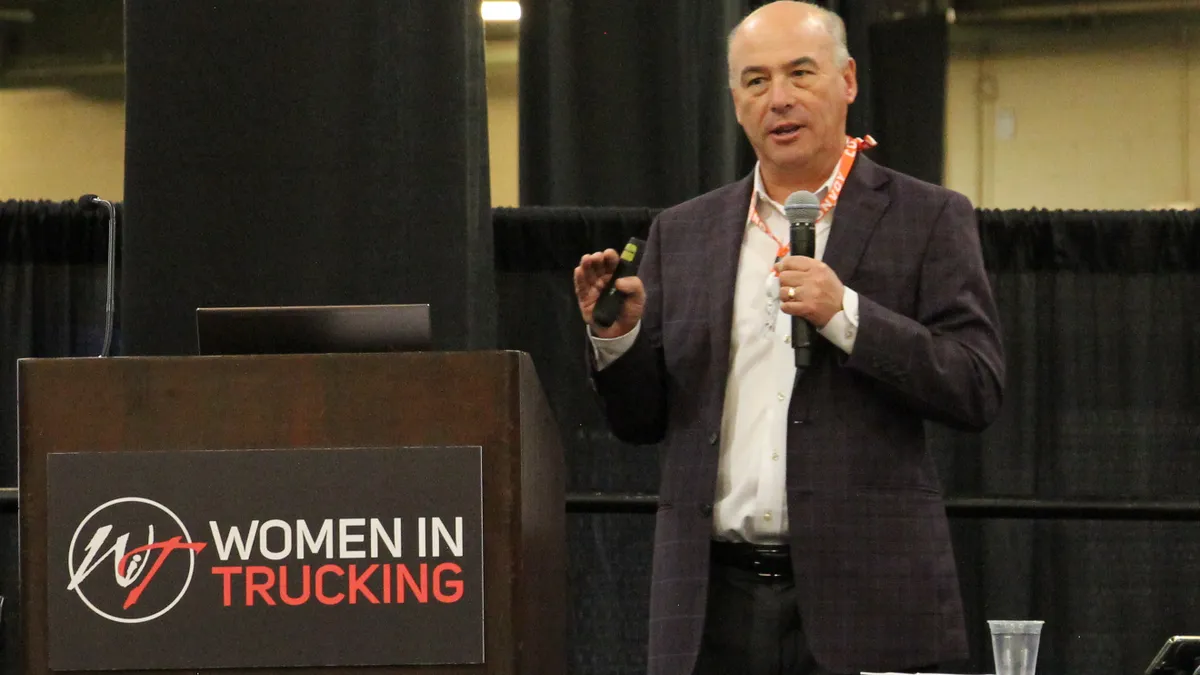Juries could be missing what the evidence says in crashes, so companies should take note of how facts are playing out in the courtroom, according to Dan Murray, senior vice president of the American Transportation Research Institute.
Although each crash has its own circumstances, research over the years has shown that car drivers are mainly to blame for crashes compared to truck drivers, Murray said last week at the Women In Trucking Association’s 2022 Accelerate! Conference & Expo in Dallas.
He pointed to findings by public and private entities. The University of Michigan’s Transportation Research Institute from 2007, for example, examined nearly 5,500 car-truck crashes and found that actions of passenger vehicle drivers contributed to 70% of fatal crashes involving commercial trucks, whereas truck driver errors alone contributed to 16% of those crashes.
But these facts are getting lost in litigation amid nuclear verdicts, according to Murray.
“It's terrifying that negligence no longer comes into play in litigation,” he said.
Various studies point to driver influence as a key crash factor
Over the years, studies have investigated the behavior that led to crashes and attempted to identify whether truck-drivers or car-drivers were more frequently at fault. Among them:
- One study published in 2004 in connection with the Highway Safety Information System found trucks at fault 48% of the time and cars at fault 40% of the time in over 16,000 crashes. But in some types of crashes, such as head-on accidents, fault was more frequently linked to cars.
- Meanwhile, recent Federal Motor Carrier Safety Administration crash stats also listed recurring issues with car drivers. In 2022, 55% of 41,114 fatal crashes of passenger vehicles had at least one driver-related factor recorded, whereas that happened for 32% of 4,777 fatal crashes for truck drivers, according to the agency.
- The American Trucking Associations once pushed these types of findings in 2013, noting University of Michigan research for AAA. Researchers in that study wrote that for 10,732 car-truck crashes, “driver factors were coded for 80% of the involved car drivers but for only 27% of the involved truck drivers.”
Each of the studies carries its own methodology and looks at different aspects of crashes, making direct comparisons difficult. But altogether, the studies seek to do more than cast blame: Often, they try to identify driver risk behaviors that could be avoided and therefore prevent crashes.
In that vein, the ATRI recently cited five behaviors were strongly linked to future crashes, with a reckless driving violation being the highest predictor over the years.
Does a focus on safety help?
Trucking companies often publicly tout safety records, but that may be to their detriment, according to Murray.
He said he recently heard trade attorneys advise that when companies cite their commitment to safety, sharing info on trucks and websites, other lawyers could use that information against companies in the courtroom.
“No matter what you do for safety, it's never enough in the courtroom,” he said. "So the recommendation at least for two attorneys was basically, ‘Scale back your safety [messaging to the public], please. It's not going to help you in the court room. And whatever you do for safety is still going to help you on the road.’”










